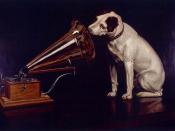Even though animals and humans are of different species, there are definite similarities in their behavior and health care. Dogs, like humans, require periodic health checkups. Additionally, dogs, like babies, cannot verbalize their pains. However, changes in behavior, such as: lack of appetite, tiredness, crying, and lack of energy are indications to their owners or parents that something is wrong or bothering them. There are many examples that can illustrate these parallels in human and canine life. These comparisons are evident practically from birth.
Puppies instinctively breast-feed. Their mother's first milk, called colostrum (thin yellowish fluid filled with protein, anti-bodies and minerals), gives them protection from disease germs. The antibodies in the mother's milk protect the puppies for about the first six weeks. These antibodies come either from the mother's own experience in fighting disease, or from vaccines that the mother received. When this maternal immunity is in affect, it also blocks the effectiveness of vaccines in the newborn puppies.
Therefore vaccinations are not given until the puppies are seven to eight weeks old. At that point, the maternal immunity has started to wear off. ('Pet Medicine' p.25)
Vaccinations for puppies continue every few weeks until they are fourteen weeks old. Booster shots must also be given at various intervals. Dogs who are not given their regular shots can develop otherwise preventable diseases. ('Pet Medicine' p.25)
Babies breast-feed the same way as puppies do, and for the same reasons. Babies receive immunity to various infections through the colostrum (the fluid that comes out before the actual milk and with the milk). Even though it contains very little iron, breast milk has a form of iron that is unusually well digested and absorbed by the baby. Most breast-feeding stops between nine to twelve months of age, however some children nurse until...


